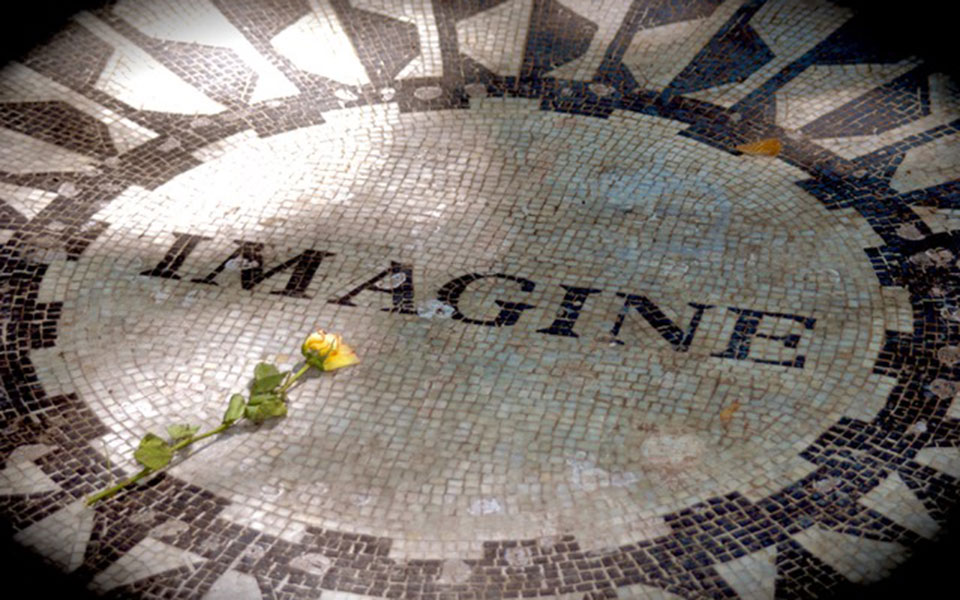
Poetry can be a form of therapy. But have you ever thought about how psychotherapy itself is a lot like poetry? Yeah, me neither.
Until the other night in a dream, I was telling a group of other psychotherapists that “Therapy is like poetry?” I sounded as if I knew what I was talking about.
But truthfully, before my dream, I had never considered the analogy.
It’s not so unusual for dreams to reveal knowledge that seems like uncommon wisdom — similar to the kind of wisdom found in poetry. Once I had a dream in which I heard the distinct voice of a German woman, with a thick German accent, telling me, “Whatever you do that is not from a place of authenticity, will incur a debt!” She sounded like she meant business, so when I woke up, I wasted no time calling a woman whom I had been dating for a short time to say what I had been afraid to say before my dream: “I’m sorry, but it’s over.” It was the right decision, though awkward and sad.
Dreams and poetry can do this for us, can’t they? Images and metaphors clarify and penetrate us in a way like no other forms of communication. Images speak to us, disturb or enlighten us, and they can transform us. Through images, we are able to imagine what’s going on with our souls and what our souls actually desire — authenticity, for example, as in the dream of the German woman’s warning.
A long time ago, I was in a marriage that would eventually dissolve, and I had a dream in which a man who was suicidal split himself, right in front of me, into multiple clones of himself. If it had been a poem, it would clearly have been a poem of travesty and despair and deep internal conflict. But, at the time, I didn’t interpret the dream, nor did I present it to my therapist. Only two years after my wife left me, did I dare open my dream journal to review what had been going on inside of me prior to my marriage’s demise. When I finally looked into the frightening image, I saw the self in me I had been afraid to face at the time I had the dream. I saw that my sadness, fear, and anger had escaped my conscious awareness because I did not want to see it. I had been holding onto my marriage too tightly, ignoring problems that were festering underneath what seemed like an otherwise very good relationship.
“Therapy is like poetry,” then, in the sense that therapist and client listen to the spoken images and the unspoken ones. Often, for example, it is the image of the “inner child” who has been forgotten and ignored. He or she will show up in symptoms such as burn-out, or irrational anger or overwhelming anxiety because that part of the self has not been given a voice in the cadence of our lives. Just as poetry can stir up emotions and thoughts we didn’t know we had, so does good psychotherapy make space for spontaneous thoughts and emotions that lead to healing and hope. It’s as if we need to speak out loud in order to know ourselves in the presence of someone who cares to hear our deepest inner rhythms.
I recall these lines from Rainer Maria Rilke’s poem “The Man Watching”:
How small that is, with which we wrestle,
what wrestles with us, how immense;
were we to let ourselves, the way things do,
be conquered thus by the great storm,—
we would become far-reaching and nameless.
What we triumph over is the Small,
and the success itself makes us petty.
The Eternal and Unexampled
will not be bent by us.
Think of the Angel who appeared
to the wrestlers of the Old Testament:
when his opponent’s sinews
in that contest stretch like steel,
he feels them under his fingers
as strings making deep melodies.
Whoever was overcome by this Angel
(who so often declined the fight),
he strides erect and justified
and great out of that hard hand
which, as if sculpting,
nestled around him.
Winning does not tempt him.
His growth is: to be deeply defeated
by ever greater things.
Rilke is referencing the story of Jacob wrestling with the Angel of God in the Old Testament; but even if you aren’t familiar with that story, you can probably feel it’s sense in the “sinews” of your body and soul — especially during those times when an illness or a relationship or a loss has wrestled with you all night, or for weeks, or years. Or you’ve wrestled against something, as in my marriage, that you wouldn’t or couldn’t face — until, if you were to move on with energy and desire and hope, you had to come to terms with your own dark Angels.
So if we listen deeply, as in therapy we try to do, we may hear the sounds, the images, the hidden rhythms of our lives seeking to sing songs of our souls. We may have to let go of something precious — like our egos, or a relationship that’s run it’s course, or a dead-end job — but what we find may be far greater than we could have ever imagined.


 Should I or shouldn’t I pursue psychotherapy? And if so, then when and with whom? Important and sometimes crucial questions.
Should I or shouldn’t I pursue psychotherapy? And if so, then when and with whom? Important and sometimes crucial questions.